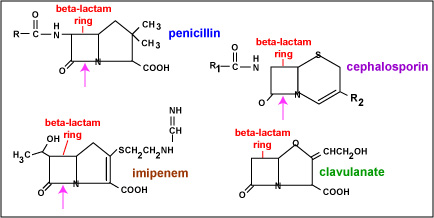
Those of us who are intent on eating only as nature intended apparently want to extend that prescription to our pets. Thus, on my latest venture to my local pet food purveyor, I found a freezer full of all-natural frozen, raw meat products, designed to be fed to cats and dogs. You can feed them beef, lamb, rabbit, turkey or chicken, whichever your pampered darling prefers. This latest venture in non-cooked provisions supposedly is good for our domesticated carnivores, allowing them to eat as nature intended, although nature doesn't provide a cute feeding dish stenciled with the pet's name. What could be wrong with this picture? No, it's not the nutritional composition — it's what else might be in the raw food — antibiotic-resistant bacteria.
Dr. Joost Hordijk from Utrecht University in the Netherlands and colleagues found that raw cat food was associated with contamination of cats' feces with Enterobacteria that contained the enzyme beta-lactamase. This particular enzyme is important because it can break down a chemical structure called the lactam ring. And that is important because it forms a part of numerous antibiotics, as shown in the figure below. No lactam ring, no antibiotic activity.

The investigators collected fecal samples from 36 cats for three weeks. Seventeen were fed a commercial non-raw diet, and 19 were fed a raw food diet. The diets themselves as well as the fecal samples were tested for the presence of beta lactamase-containing Enterobacteria. Their study was published in PLOS One, and what they found was perturbing.
Fourteen of 18 samples of the raw foods contained the bacteria, while none of 35 samples of non-raw foods did so. In addition, 90 percent (37 of 57) fecal samples from cats fed raw food also were contaminated, compared to 3 of 51 samples of non-raw food. Thus, the researchers calculated that the odds ratio of finding such contamination in raw food was 31 times greater than for non-raw foods.
In their discussion, the authors concluded "Consistent exposure to raw pet food products seems to be accompanied by ESBL-pE (the Enterobacteria of interest) shedding, opposed to gut colonization. Pet owners should be aware of a possible risk for ESBL uptake when handling raw pet food products.
Contamination of pet foods by pathogenic bacteria is not a new phenomenon, although the presence of antibiotic resistance in those is relatively recent. Indeed, the FDA has recently warned about Salmonella and Listeria monocytogenes contamination of pet foods.
So, if you think that "natural is better" to the extent of feeding your carnivorous pets on raw food, you should either 1) think again, or 2) take the FDA's warnings to heart and follow their protocols for avoiding picking up dangerous bacteria. I know which choice I'd make.



